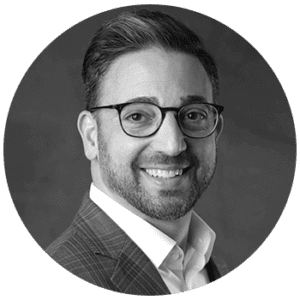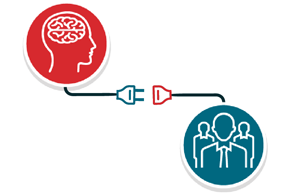So much has happened in the last few months in our industry especially in light of the OIG’s Special Fraud Alert on Speaker Programs that was issued toward the end of the year. I want to really get into some of those nuts and bolts, talk about what the OIG is telling us with their guidance, how it might affect you, and what you can do to take control for your brand and your organization. Biopharma companies routinely invite physicians and other health care professionals to speaker programs. Speakers are typically paid an honorarium and the attendees often receive a dinner for participating and coming over the dinner or lunch hour. Now, that’s been happening a long time in the industry until COVID happened and cancelled most of these programs.
Last year, there was more than a 90 percent drop in speaker programs due to COVID. So the OIG took the opportunity and said, “do you really need to continue with these?” We see some risks associated with it and we want you to take some time and evaluate whether or not speaker programs are even worth it. I think it’s important that we start there and ask ourselves, “why are speaker programs even valuable?”
Now we can look at ROI analysis and return on education and, from a pragmatic perspective, say “sure, they make sense.” But the truth of the matter is that health care professionals accept adoptions at very different times because we know they fall within different categories. There are the innovators, who are typically not clinicians or prescribers, and are the first ones on-board. They typically influence opinion leaders, who then go out educating and bringing other folks into a product category. And then finally there are the traditionalists, who always lag in their adopting.
Of course needs do change along the product life cycle, so peer to peer education is incredibly valuable because physicians find themselves in different buckets based on multidisciplinary perspectives. Different people need to learn in different ways, and if you think about the stages of adopting innovation, it all begins with awareness. Awareness can happen from a sales representative or even a patient coming in, but often it’s key opinion leaders and national experts guiding them through the evaluation phase and taking them through the data. Speaker programs allow them to do this while working with colleagues and having someone to bounce ideas and questions off of. Then eventually physicians may adopt a product with complete confidence.
So knowing these different stages along the way of adopting innovations, does it make sense to remove speaker programs? Well, let’s talk about some of these companies that had some impropriety.
You could start with Merit Medical Systems in October of 2020. They acknowledged that they paid physicians and surgeons to use their products. Payments were disguised as marketing practices such as speaker fees, and they settled on an 18 million dollar settlement. Teva Pharmaceuticals, in December 2019, settled a whistleblower lawsuit for $54 million dollars for inducing physicians to write prescriptions for drugs that treat multiple sclerosis and Parkinson’s by paying them kickbacks as speakers and consultants. And then in July of 2020, Novartis violated the False Claims Act with respect to speaker programs in particular, and they were fined six hundred and forty two million dollars. This was a massive issue and OIG said we need to put some guardrails around this, which led to their special fraud alert in November 2020, listing several suspect characteristics.
Let’s review these and talk about whether or not these are risky for speaker dinner programs and what we can do to address them. The first one that they mentioned was alcohol or a meal of modest value. They’re not giving guidance as to exactly how you manage that, but they’re saying these are concerns. The program location also needs to be conducive to the exchange of information. Most companies have done a tremendous job regulating where they have their programs. They’re not doing them in Ritz Carlton. They’re doing them in very modest locations and where they can conduct programs very effectively and privately.
Next is no recent substantive change in relevant information. OIG is asking if this product has been on the market for 15 years and there’s been nothing new for eight years, then why conduct speaker programs? Health care professionals are attending programs on the same topics more than once. In other words, is there an appearance that people are attending these programs to get another meal or are they actually doing it to learn?
Another concern was attendee’s being allowed to attend who don’t have a legitimate business reason. Are we allowing receptionists to attend or spouses? All of our clients at V2V have guardrails around this already. But what are they doing next to select speakers? And is the sales or marketing groups involved with influencing speaker selection? And are the companies really paying fair market value? Years ago, the ethical pharmaceutical world self-regulated and created their own fair market value assessments and determined how to go about paying HCP speakers and did it in a tremendously ethical way. But there are some companies that have gone outside of reasonable guidelines. So when we look at live speaker dinner programs, I can understand what the OIG is saying.
So our team did an internal analysis to say how realistic and how applicable to the real world is this guidance? As we assessed every single one of these, we did feel that each of these characteristics do come with a level of risk for speaker dinner programs. We broke them down into four key areas of concern. Those areas are the venue, what the program is offering, what is the purpose of the program, and the payment to speakers according to their fair market value analysis.
If you look closer at these, all four have everything to do with live speaker dinner programs. So what is pharma going to do? There’s the option to simply lay down and say “well, I’m not having anything to do with peer to peer programs anymore.” But look at the model in which physicians learn and we see they need peer to peer. Peer to peer is a tremendously valuable opportunity for them to learn key information in a very deep level that, frankly, they’re not going to get from most other sources. And most speakers are going to provide a level of unbiased dialogue as a clinician to clinician. So are you going to lay down and not do anything?
Or are you going to modify the program? Are you going to look for alternatives? One of my favorite authors, Viktor E. Frankl says between stimulus and response, there is a space. In that space is our power to choose our response. In our response lies our growth and our freedom. This is so important because in this case the strategy which lies between the OIG’s action and biopharma’s response will affect patient care for years to come.
I think if we get this right, we can continue to deliver tremendous education within our industry. But we’ve got to get it right. And by getting it right, we’ve got to look at options. And one of the options that was suggested in their guidance was, can you do these programs virtually?
We assessed the categories they mentioned and determined that out of these categories, there are only two that we felt had the same level of risk when conducting the program virtually as with doing a live speaker dinner program itself. The first is speaker programs with little or no substantive information. These are going to have the same level of risk. And the other area of risk would be company paying speakers more than the fair market value.
All the other categories certainly have less risk when you do them virtually. The attendees are not having dinner, not having alcohol, and are not in a venue. By cutting that out, all of a sudden you lower the risk on all of these other categories. So virtual speaker programs certainly provide a tremendous avenue.
With that said, let’s look at some of the key factors to consider when conducting virtual speaker programs. We’re highly suggesting taking these key actions here. I want to start with speaker selection. It’s really important that every organization institute only objective speaker selection criteria and remove the sales representative from the process of selecting speakers. If you’ve already done that, I highly suggest going back and having an objective analysis conducted to determine whether or not the speakers on your bureau are actually there to provide education, or is the company possibly working at trying to influence them? So the fair market value of the speakers is absolutely critical. We want to make sure they’re compensated at fair market value and that compensation simply means they’re making what they would receive working in their jobs. If they’re working and getting four hundred dollars an hour, that’s a fair rate.
Ensure the number of speaker programs conducted is based on the number of customers that really need to be educated on a new product and indication or updates. Don’t go overboard. Be strategic with how many programs you need to have and how many speakers you need to have on the bureau. And don’t focus on the return on investment.
This is something that had been done for a very long time. But now OIG is saying we know you all look at return on investment. But isn’t there a way you can measure educational impact differently? Looking at the return on education is a better way to do this. Manage attendee credentials and track and document everything that happens in these programs. If you don’t have a portal for your speaker programs or for your virtual events, you need to have one to provide reporting.
All of these things are critical because at some point you may need to defend your actions and the frequency setting limits on how many times certain attendees can attend. Having a portal or a tool that allows for information exchange is going to make this a lot easier. One more thing you could do is maintain the presentations. Maintain recordings and have these programs monitored so that you can document you’ve done your due diligence.
Peer to peer education provides tremendous value to HCPs because they learn by doing. They’re naturally driven by not just data, but by the collective experiences of their colleagues and the top experts in the field.
Speaker programs still have a legitimate place in HCP education overall as long as the focus is ultimately on the patient. When we respect patient care, we make the best decisions. Along the way, this means organizations must be able to conduct programs in accordance with the OIG guidelines. Obviously, mitigating risks is a big concern for most organizations and hosting speaker programs virtually, offers a path with less risk while ensuring critical HCP educational needs are met.





